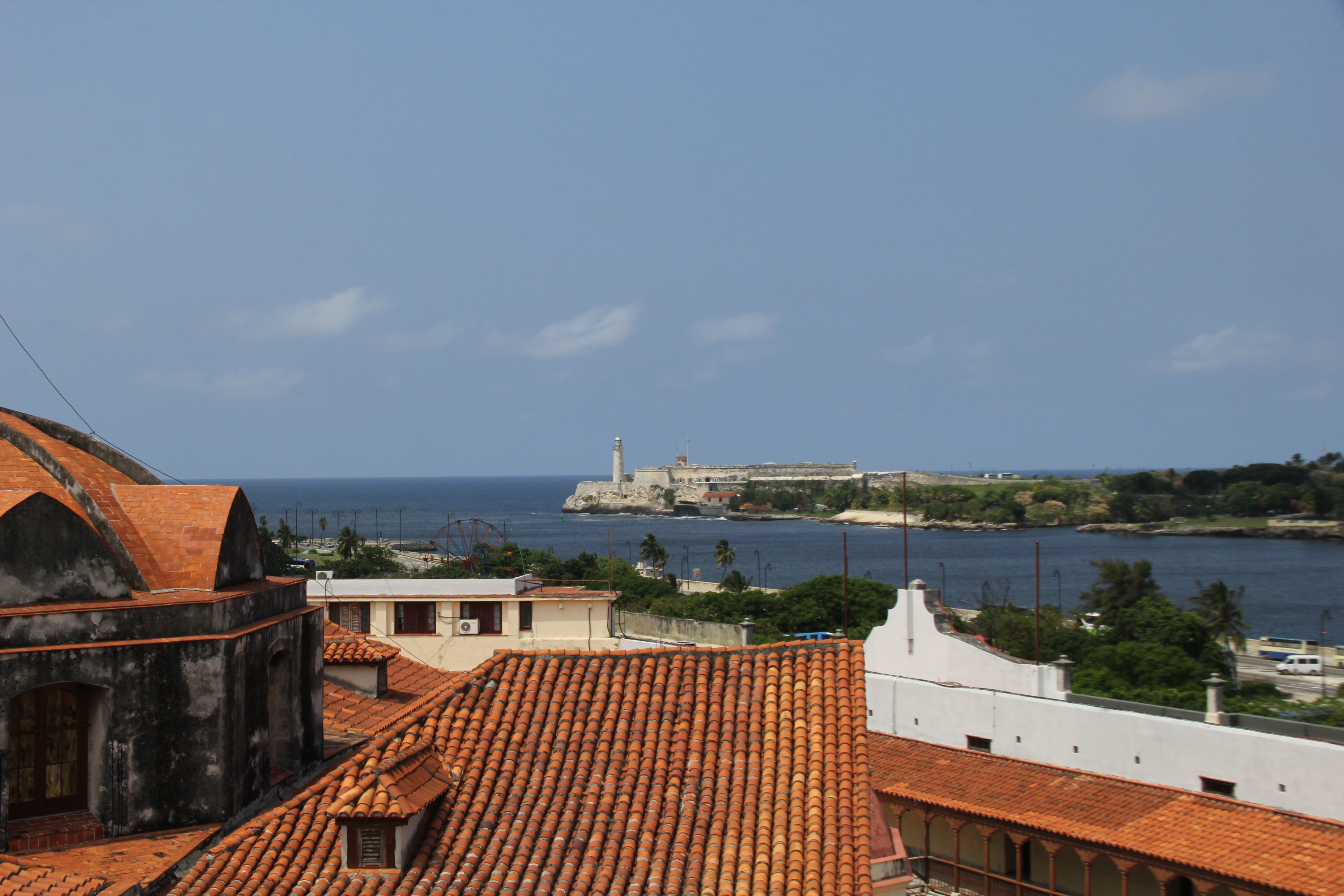
What’s Next For Cuba Following the Warm-Up with the US?
Cuba won’t sacrifice its convictions.
A version of the article below appeared on Russia Insider, December 20, 2014: US Opens to Cuba to Drive It Away from Russia. It Won’t Work.
Having lived for a period of a total of about 2 months in Cuba this past year, the news that the US will establish an embassy in Havana, caught me by a slight, though not total, surprise. There were earlier signs this may happen, as the New York Times dedicated several editorials in recent months calling for a warming-up of US-Cuban relations and after it was indicated that the US may be reconsidering its failed policy approach (though it was suggested that such a breakthrough may take place next year). The Western mainstream media, however, has already made so many mistakes in covering this topic, that I found it necessary to offer my own feedback and analysis.
First, the release of 3 of the Cuban Five (two of whom were already released), Antonio, Gerardo and Javier, after years of their unjust imprisonment in the US prison, should be seen as a victory for Cuba, that managed to secure terms in an honorable way that did not force it to bend down or compromise its integrity despite its small size. Cuba released Alan Gross, a US contractor who could have worked in service of the CIA, but it did not obligate itself to any kind of ‘regime change’ frequently demanded by the vehement anti-Castro lobby. For many Cubans, the release of the three is a personal and national victory. Their country was acknowledged as a force to be reckoned with and their brethren were brought back home, therefore securing the confidence of the people in their government, that it did not forget those it sent to foreign shores.

Secondly, it appears that the US has two strategic goals in warming up to Cuba. The first is isolating Russia and prevent it from operating a listening station in Lourdes, and weakening its ability to have a key ally near the United States shores, and the second is winning the trust of Latin American sanctions after it has been shunned by them and following the sanctions it has placed on Venezuela. It should be remembered however, that Cuba and Russia have very close relations based on decades of friendship that are not about to disappear (Russian President Putin recently forgave Cuba 90% of its debt), and that Cuba under its current strongly ideological leadership, is not about to surrender to US demands or turn Capitalist overnight after it withstood the ‘special period’ during which its people lose a significant percentage of their weight following their abandonment by Yeltsin’s Russia. The Los Angeles Times was quick to eulogize Cuban-Russian relations claiming it will “wither with time” but most Cubans strongly support and like President Putin and Cuban-Russian relations are based on trust, a trait missing from US-Cuban relations. Even the Deputy Russian Foreign Minister Ryabkov welcomed improved US-Cuban relations probably since this would ease the burden on Russia to take care of Cuba’s needs. Also, we are still a far cry from ending the embargo which would need the approval of the US Congress (although Obama has the power to modify the way it is implemented), that is already highly dominated by Republicans who traditionally oppose warming up of US-Cuban relations due to the anti-Castro lobby in Florida. In addition, it should be recalled that due to the growing economic power of Mercosu’s economic union of Latin America and Brazil’s significant size and growing economic stature, Latin America has become a potent economic force that can no longer be easily dominated and Obama’s step can be seen as acknowledging changing geopolitical realities. However, again it should be noted that Cuba is not about to abandon Venezuela, and that states that are members of Mercosur, such as Brazil, Argentina, Uruguay and Paraguay harshly criticized the US sanctions on Venezuela as being “an infringement on the principles of no intervention in other states’ affairs.“Unlike Capitalist countries whose sole motivation is profit, Cuba has socialist ideals that guide it (though it is also prgamatic and cannot operate apart from reality) but it is not about to say goodbye to all its old friends.

Thirdly, supporters of Cuba abroad should realize that the economic situation in Cuba is far from being easy and that most Cubans would definitely like to earn more, see more tourism coming in (though tourism is very well now but it can always grow) and have more access to goods (while they are supportive of the Cuban Revolution and of the Cuban government). This means that if the economy would grow due to the warming up of US-Cuban relations, Cubans would benefit greatly since they would earn more. However, there is also the possibility that US corporations will buy the island overnight, robbing it of its historical beauty and charm and turning its people into an underpaid labor force. However, that is unlikely to happen anytime soon since again, Cuba is guided by highly ideological factors. Steven Rosenfeld writes that Havana can become a major economic powerhouse and that US companies could offer it internet service, but he forgot to realize that it takes two to tango. Fidel could have accepted European companies operating in Cuba in the past but refused to. Cuba has shown itself to be highly rigid on the one hand, yet also highly adaptable on the other hand (while guarding the success of the revolution as sociologist Susan Eckstein explains in her excellent book), and the warming up with the US should be seen in this light. All things considered, I would argue the obvious that both Americans and Cubans could benefit greatly from the ending of the embargo and for a from a full exchange based on mutual respect of their differences, but we are not there yet, though President Obama did take a first step in that direction. Ordinary travel of Americans for the sake of tourism is still forbidden, though permissions due to religious, social or family reasons will be relaxed. According to the New York Times, remittances are to be increased from $500 to $2000, Americans will be able to import goods worth $400 (and cigars worth $100) and the use of debit cards to be allowed.
Fourthly, before the ink even dried on the agreement, we are already hearing calls for a regime change in Cuba, coming from, who else but liberals, who think they know what is best for Cuba. It should be noted that such calls are not only idiotic from the perspective of those who want a regime change, as such calls will mean that the Cuban Government will already regret the steps it took so far, but also are a sign of total arrogance and a misunderstanding of one’s given position. For example, Cuba is being criticized for not having a free press, while in the US and UK a free press hardly exists as the corporate media has been propagating particular views while silencing others. Secondly, as sociologist Sujhata Fernandes notes in her book ‘Cuba, Represent!’ Cubans take an active part in criticizing or challenging the government through through cinema, music and the arts. Also, many in the developing world at large, do not care too much about ‘democracy’ and in electing a candidate who is being sponsored by a corporation, but instead would like to enjoy growing prosperity and receive a good healthcare and a decent education and the question of who is in power or for how long is secondary. From my own experience, Cubans by and large, can be quite critical of the Cuban government for not doing more to open up the economy, but at the same time they are wholly supportive of the Cuban Revolution and of what it has given them.

Fifthly, once a US embassy is established in Havana, assuming it grants visas with a greater ease than at the moment, than we are likely to see US-Cuban relations increasing and the economy expanding. The question is how would the Cuban government prevent the US from attempting to stage a revolution in Cuba as it has done so many times in the past, but let us leave that to the Cuban government to worry about, which has so far done very well, though of course the risk remains. Also, in my view it is likely that conversations between the US and Cuba will stall in the intermediate future, since Cuba will not be able to compromise on giving up the Cuban Revolution while the US will demand a US corporate takeover of the small island. Again, it should be noted that Cuba has always been very adaptive to circumstances and has managed to survive in very difficult conditions so it is not about to give up now. President Obama should be commended for taking a rational and humane step, which would only benefit the US and Cuba (while not forgetting that the Obama administration is still causing havoc in Venezuela, Syria and Ukraine). If we are to imagine ahead, if things continue this way, we will see ‘normal’ US-Cuban relations in several years, and gradual changes coming to Cuba via reform rather than a revolution but for that to happen the US must let go of its messianic and economic ambitions to ‘change’ Cuba.
